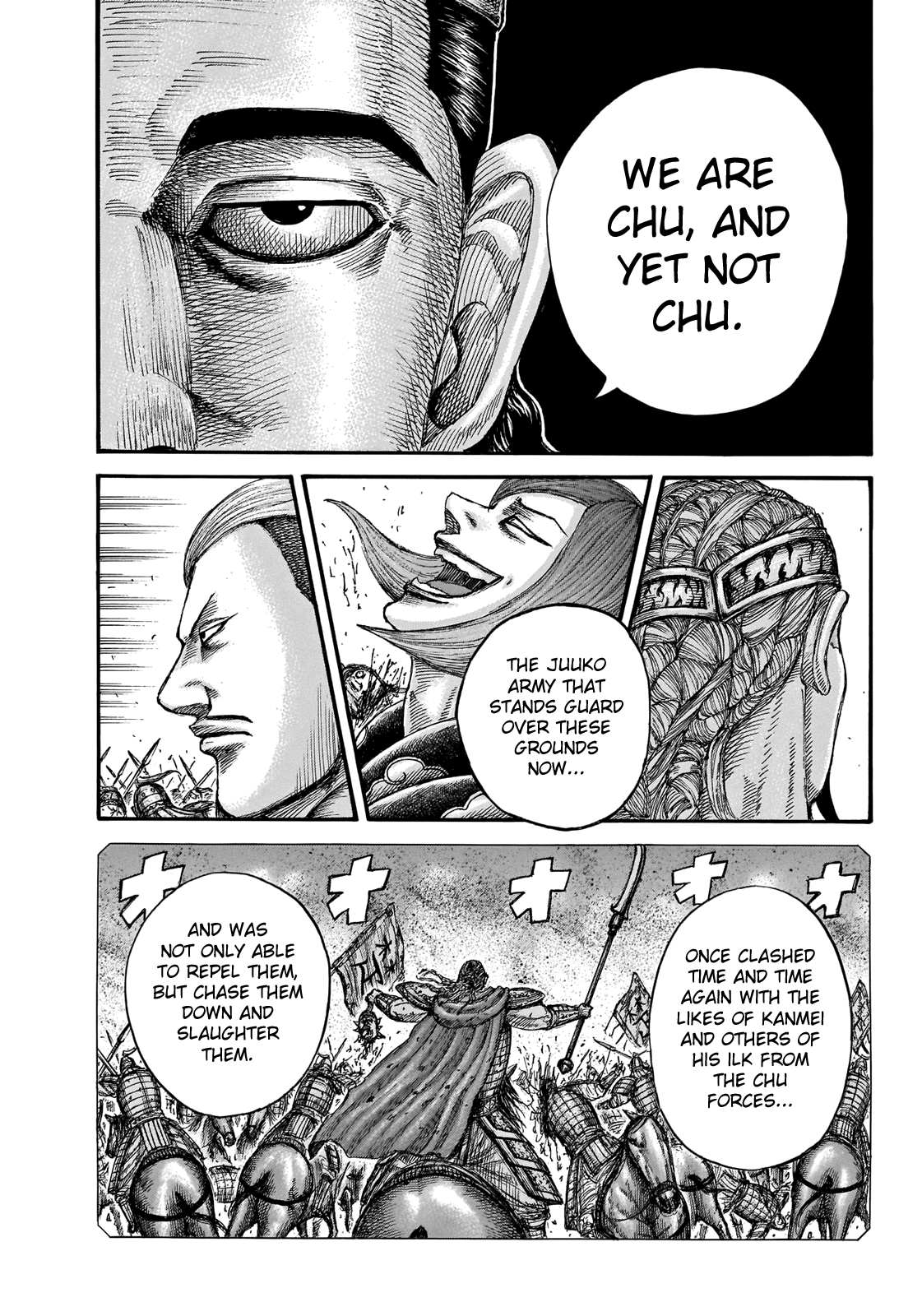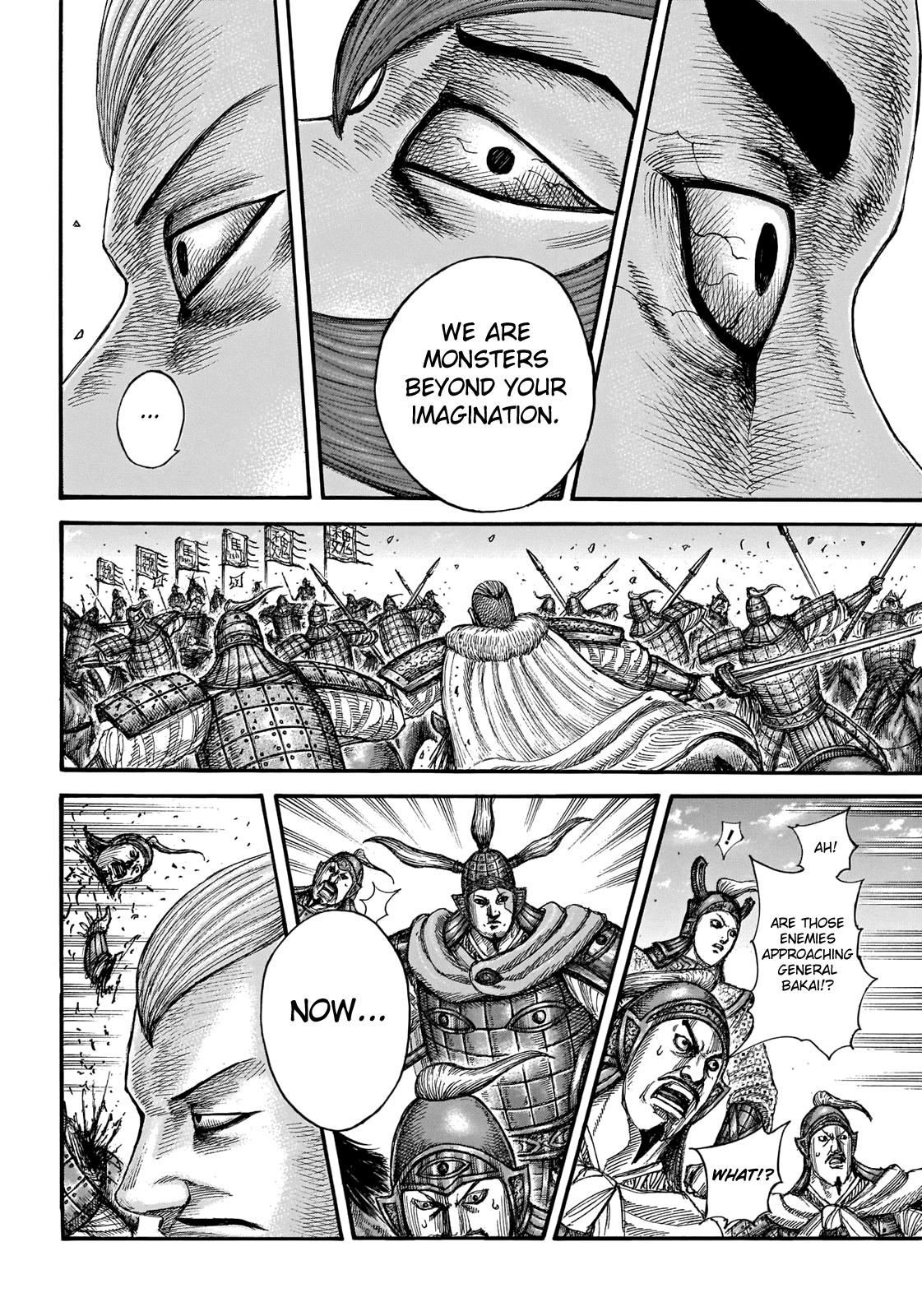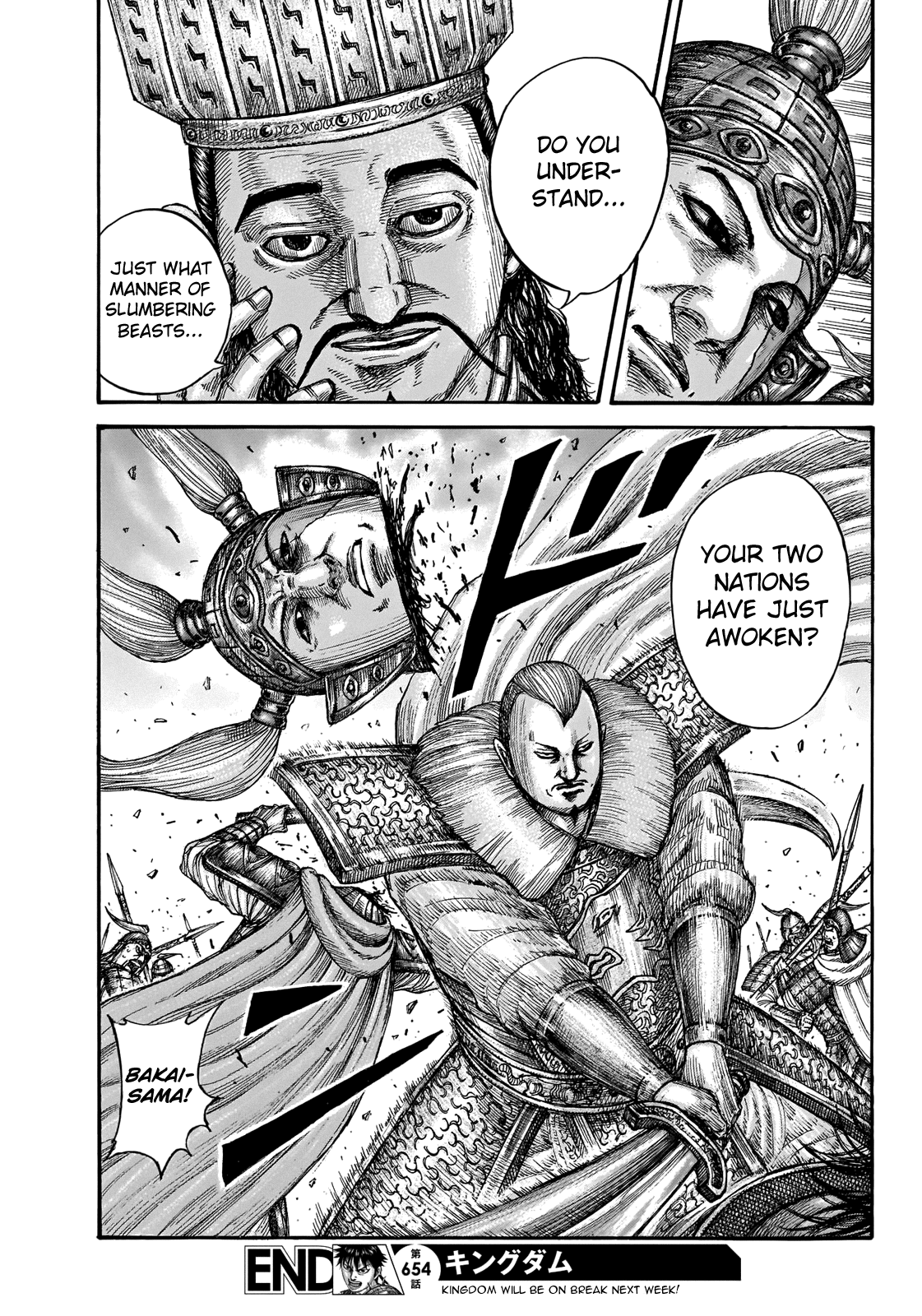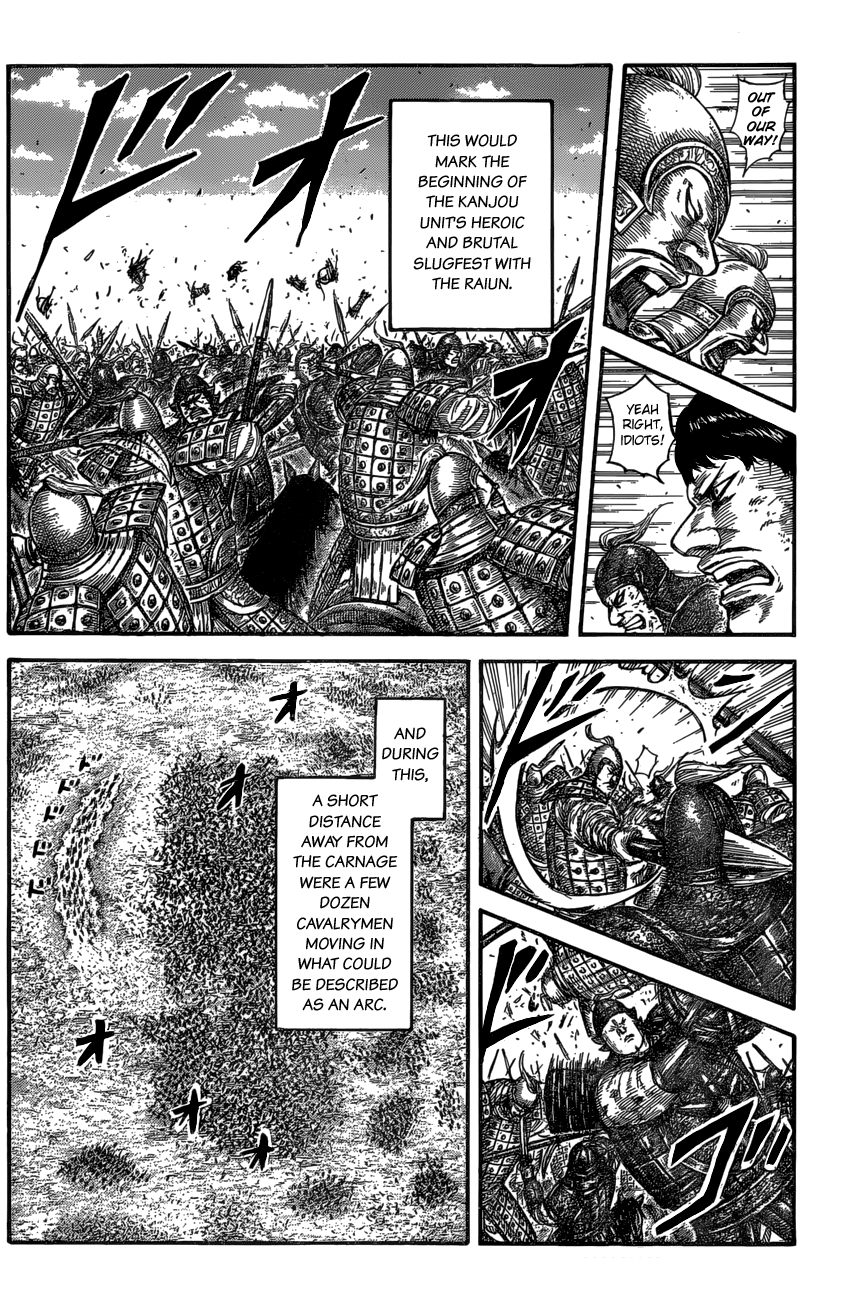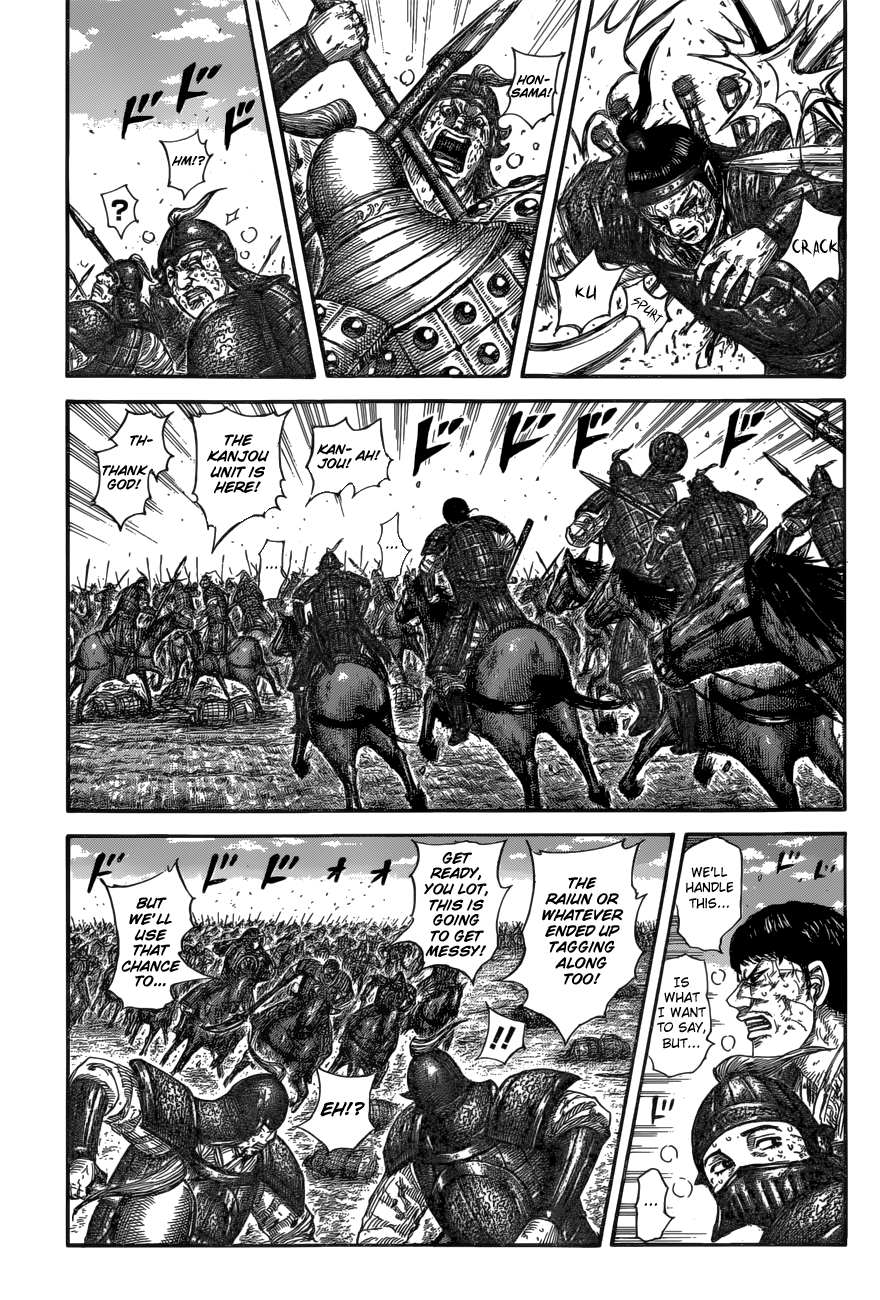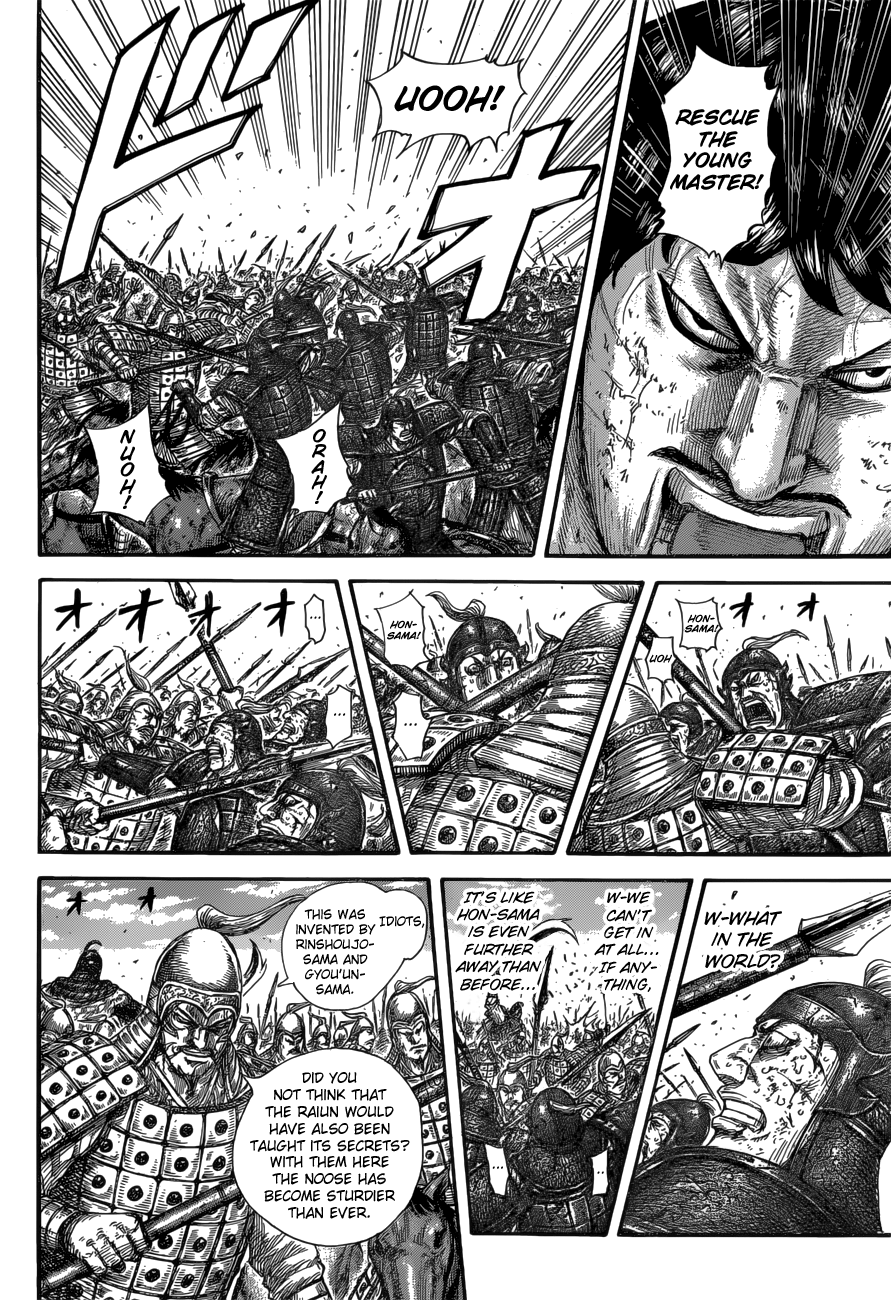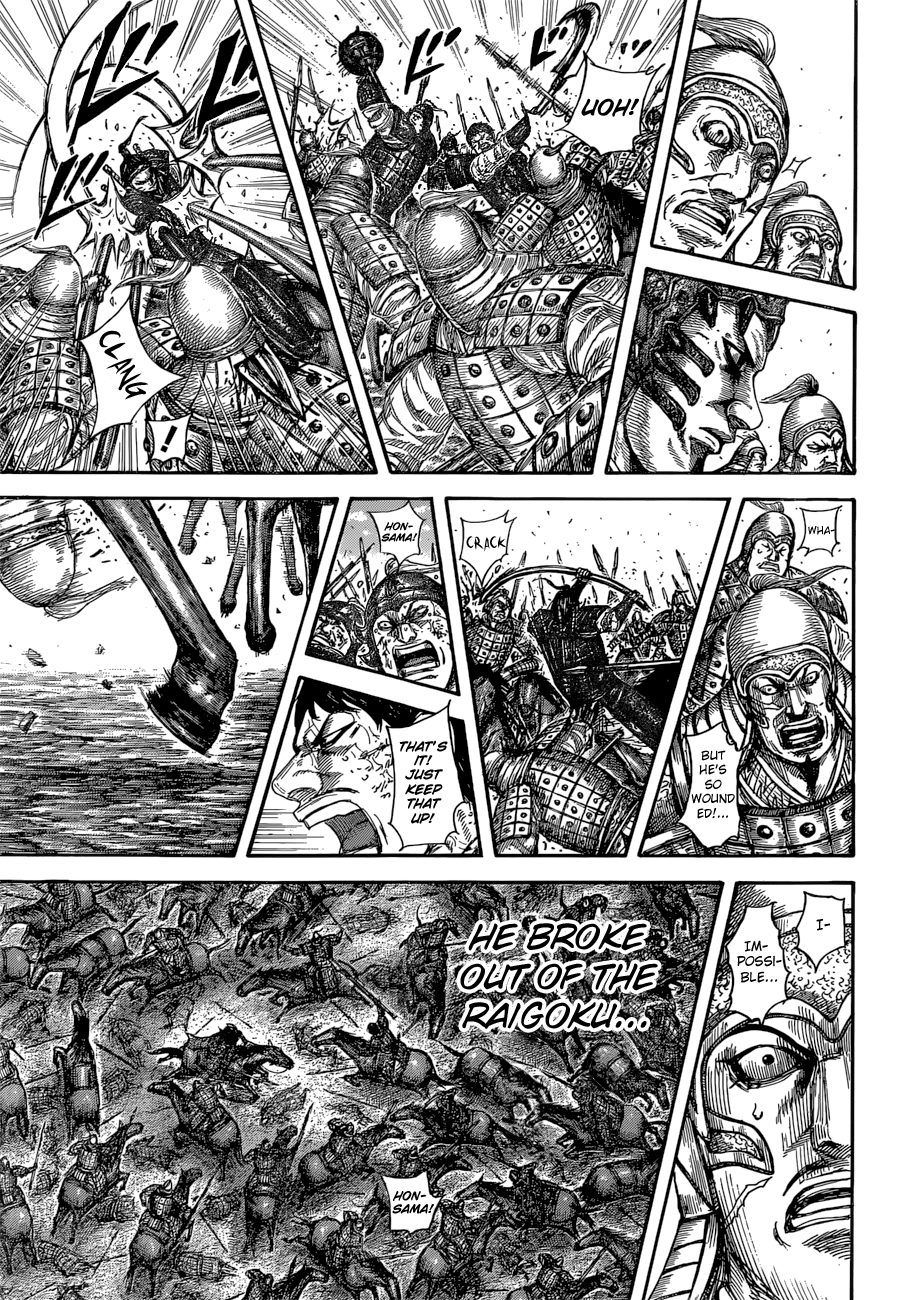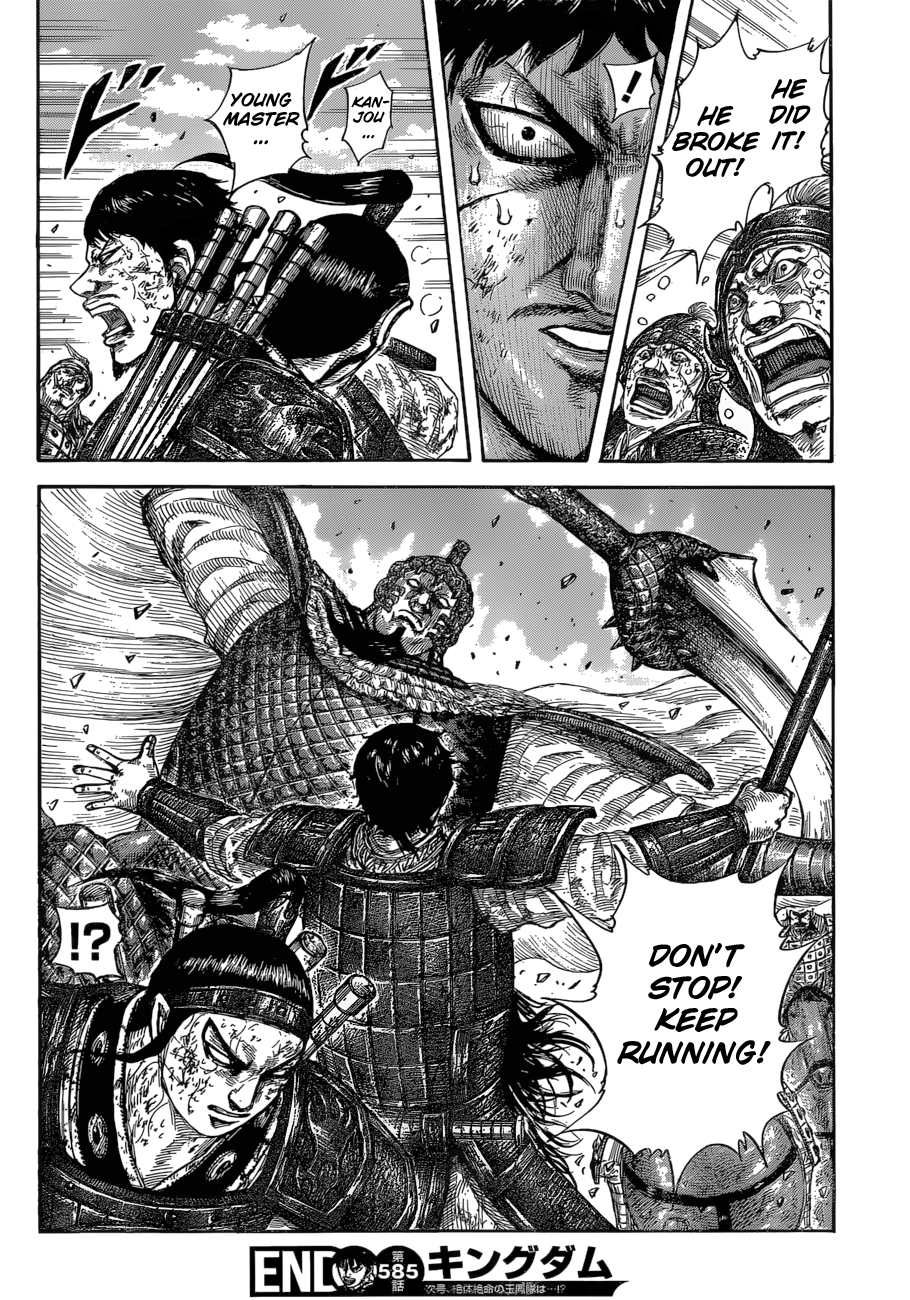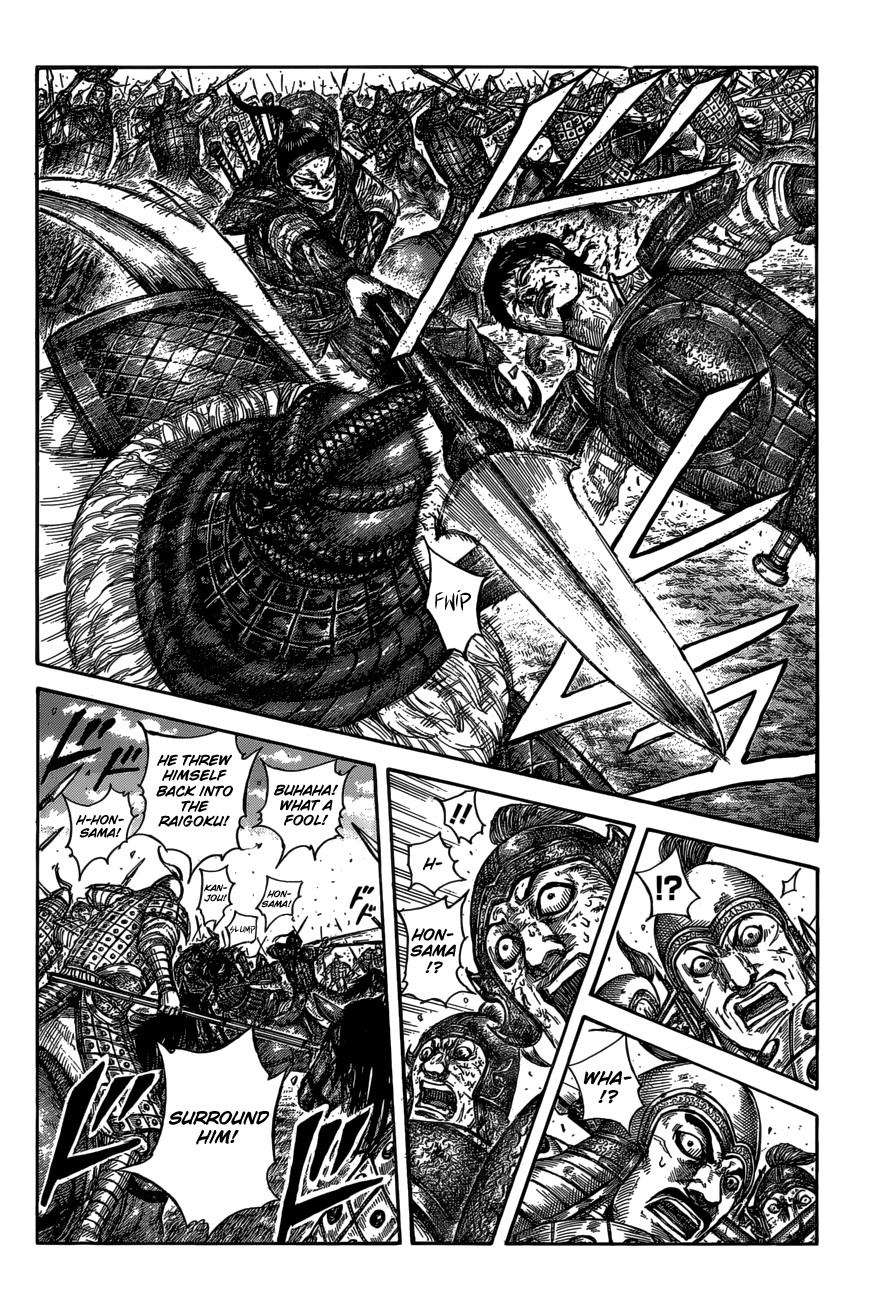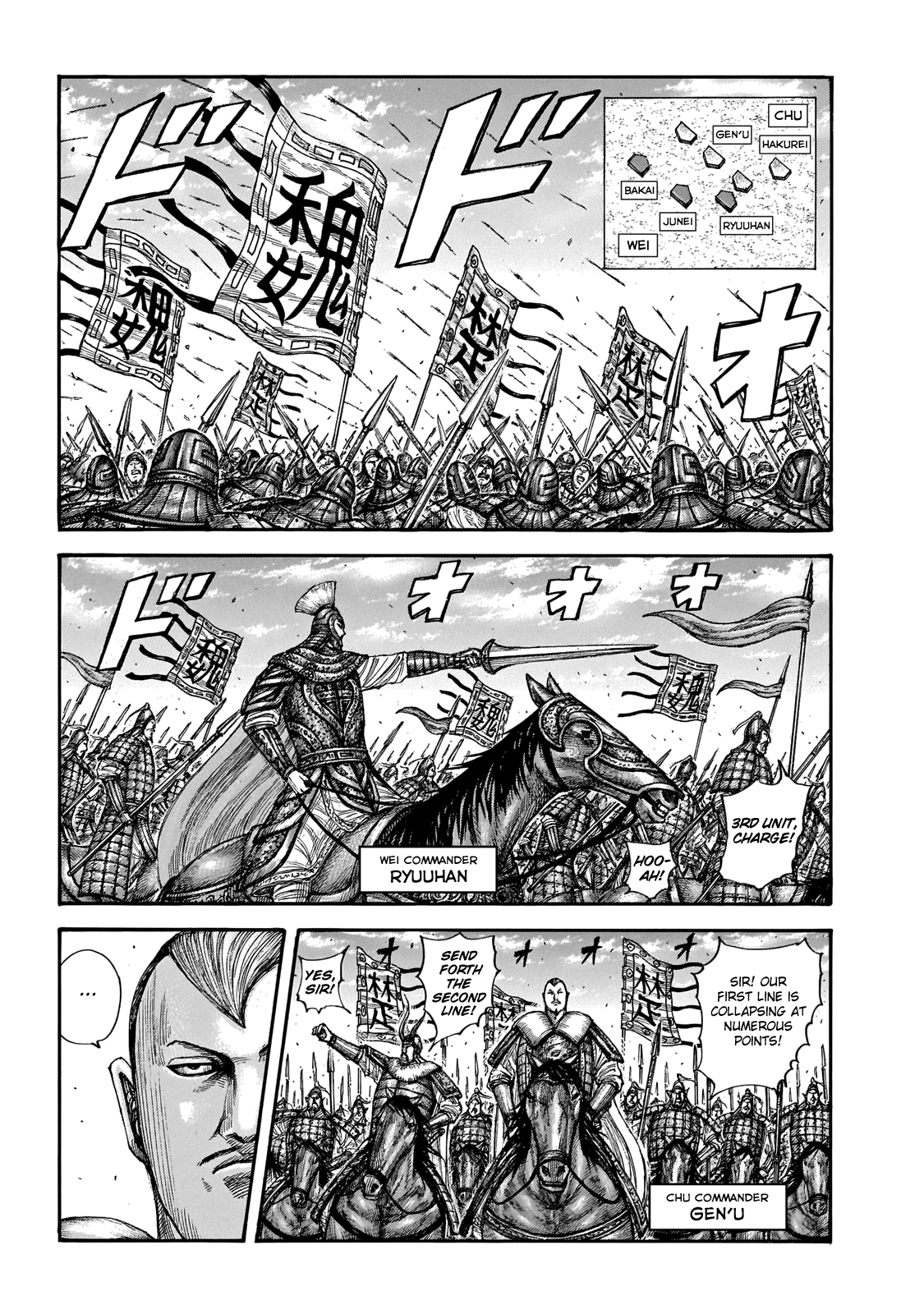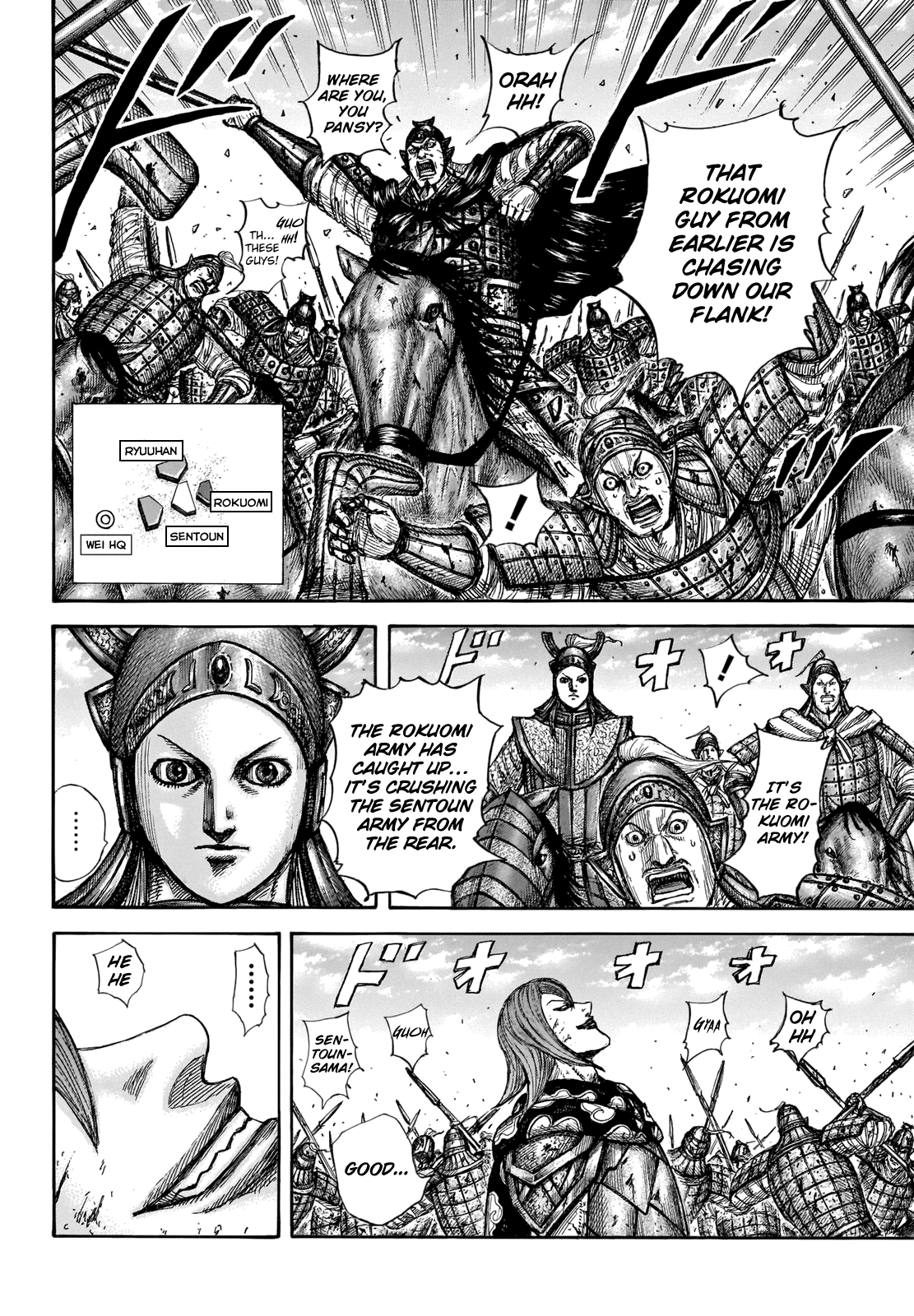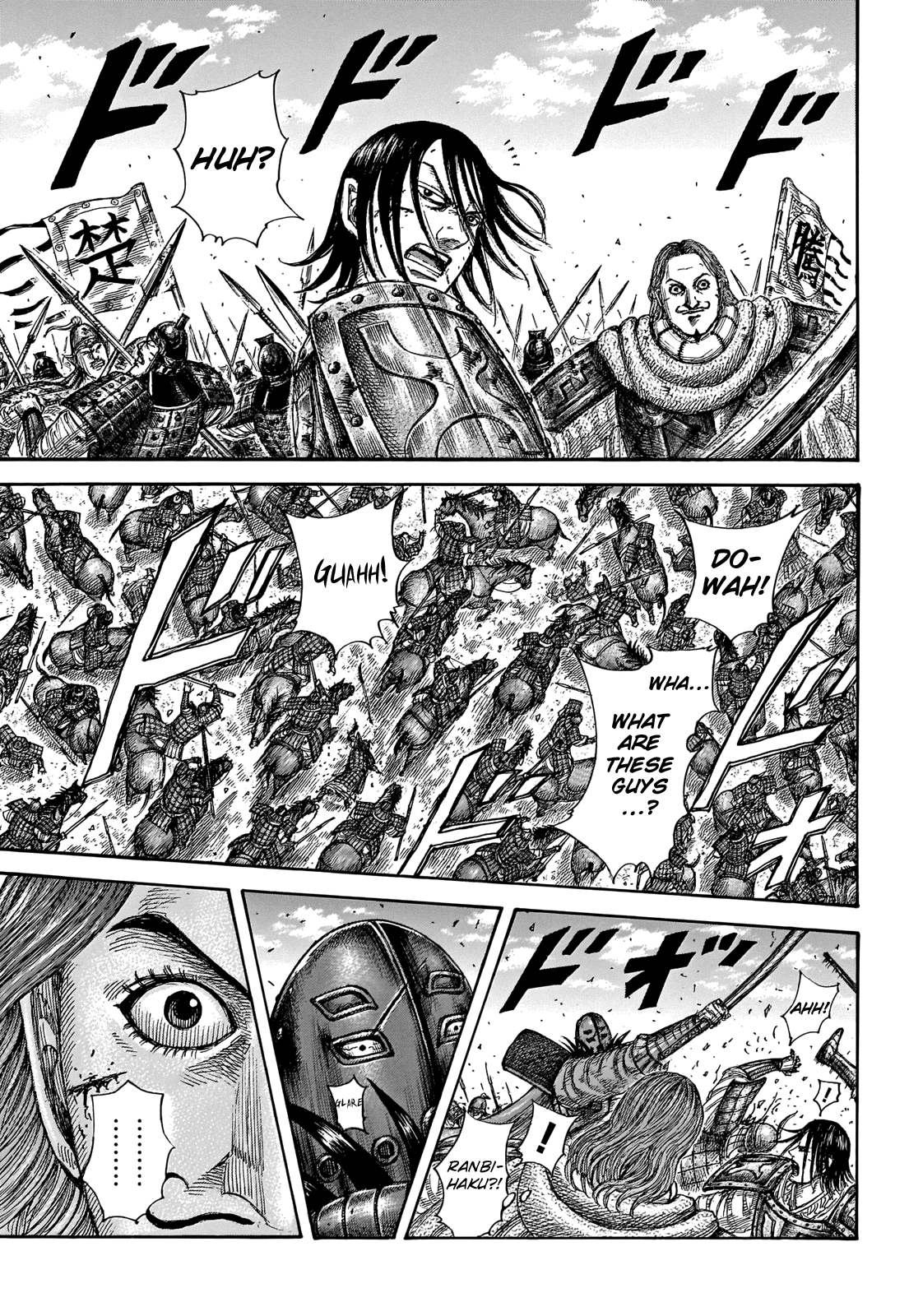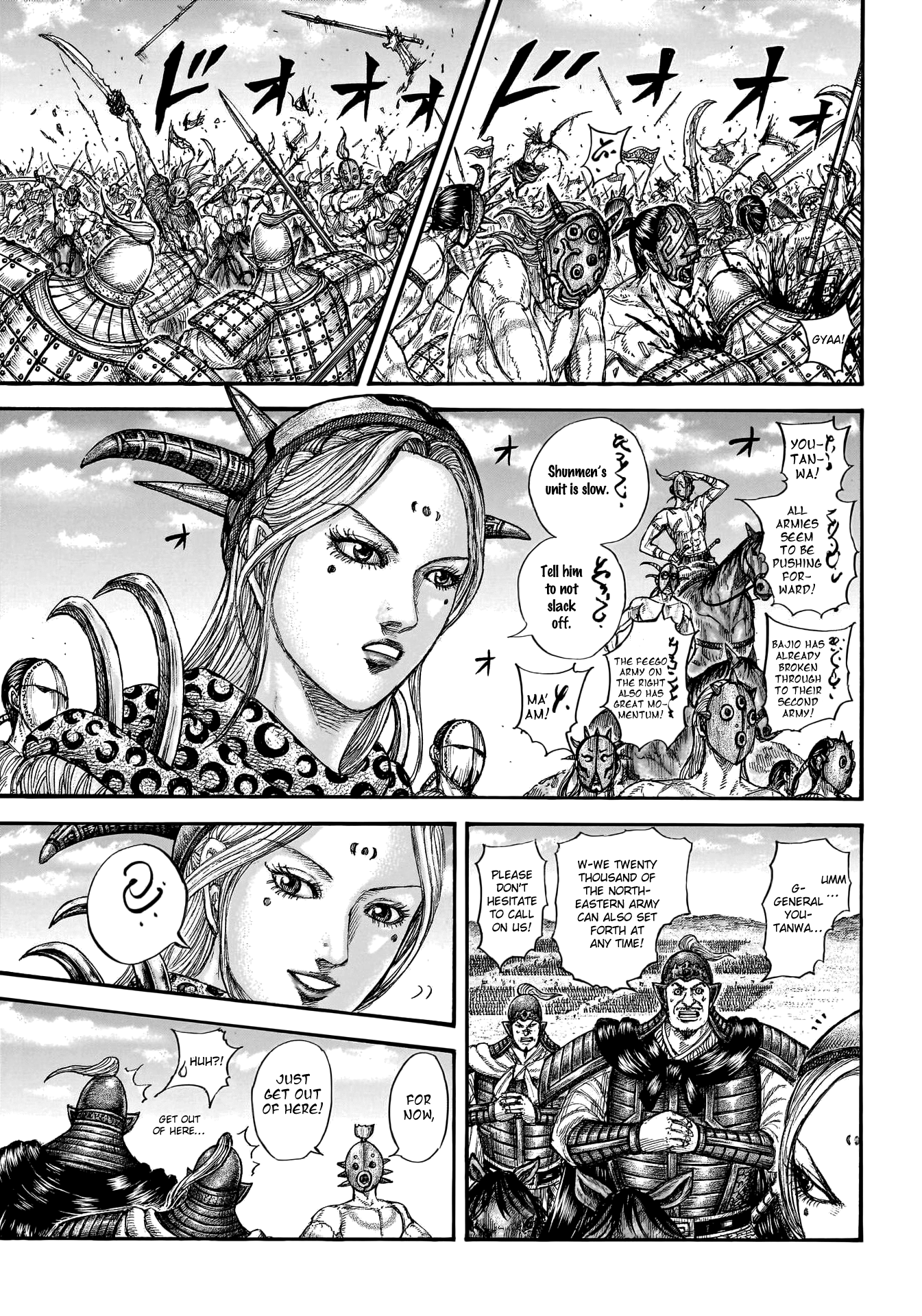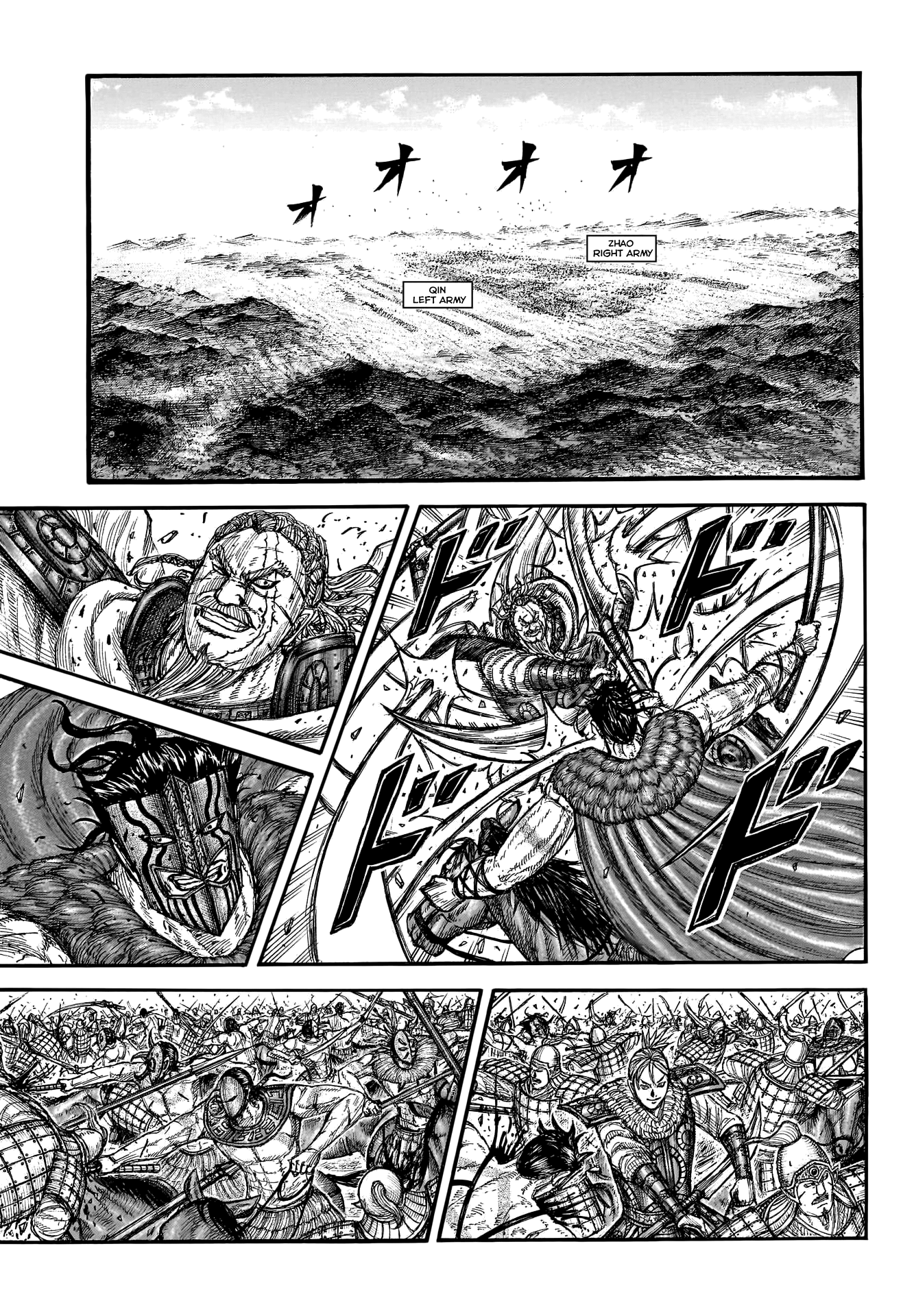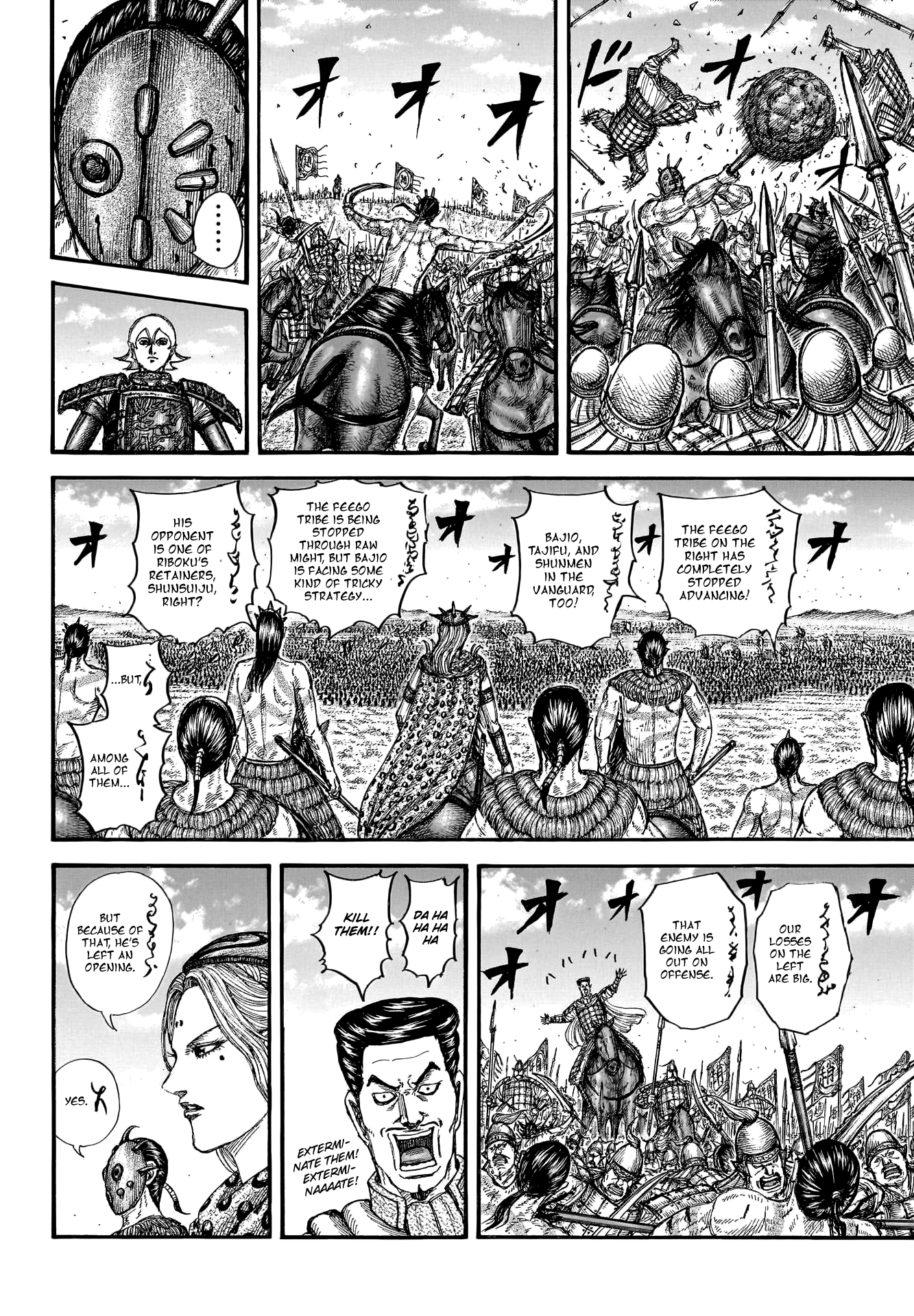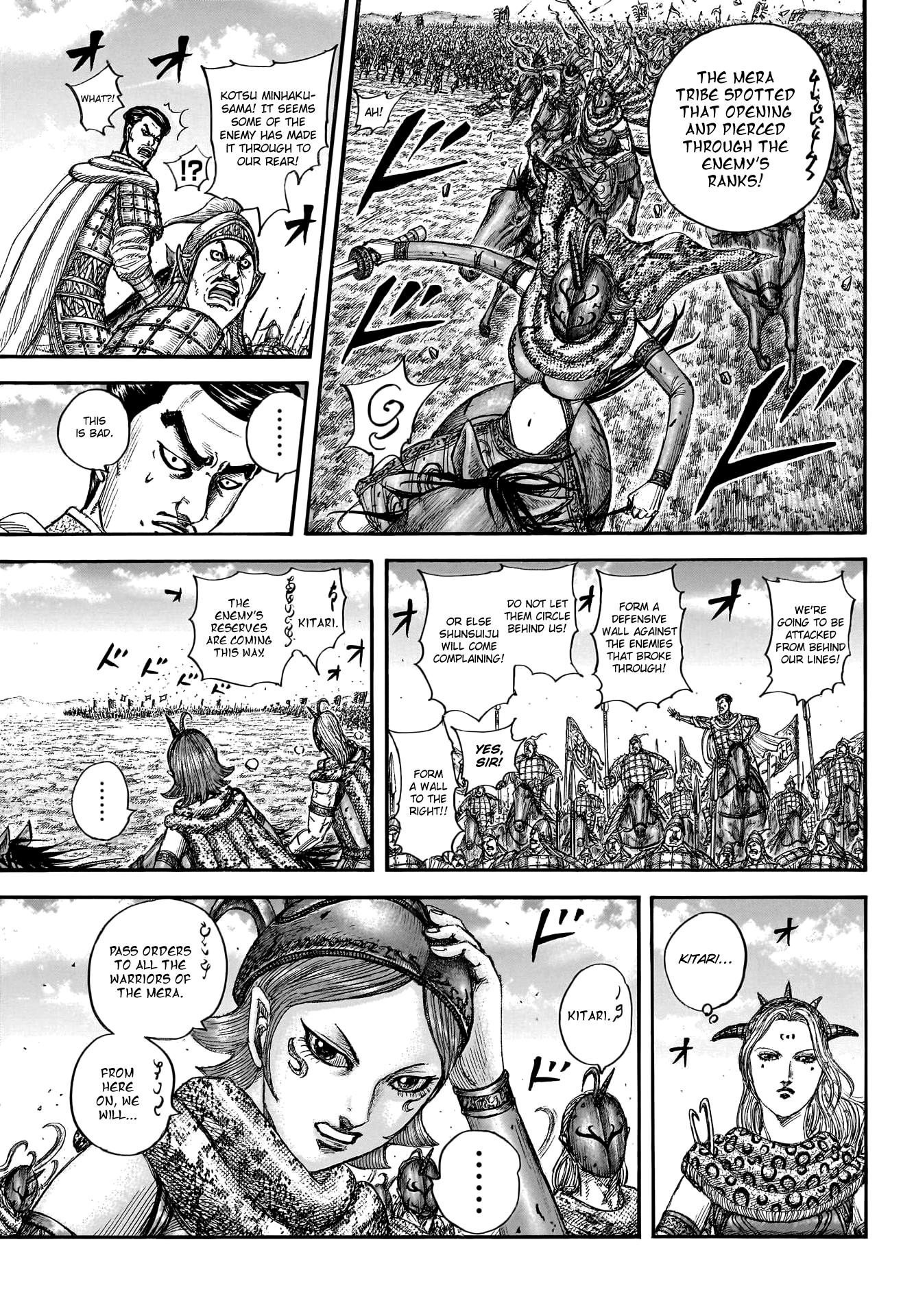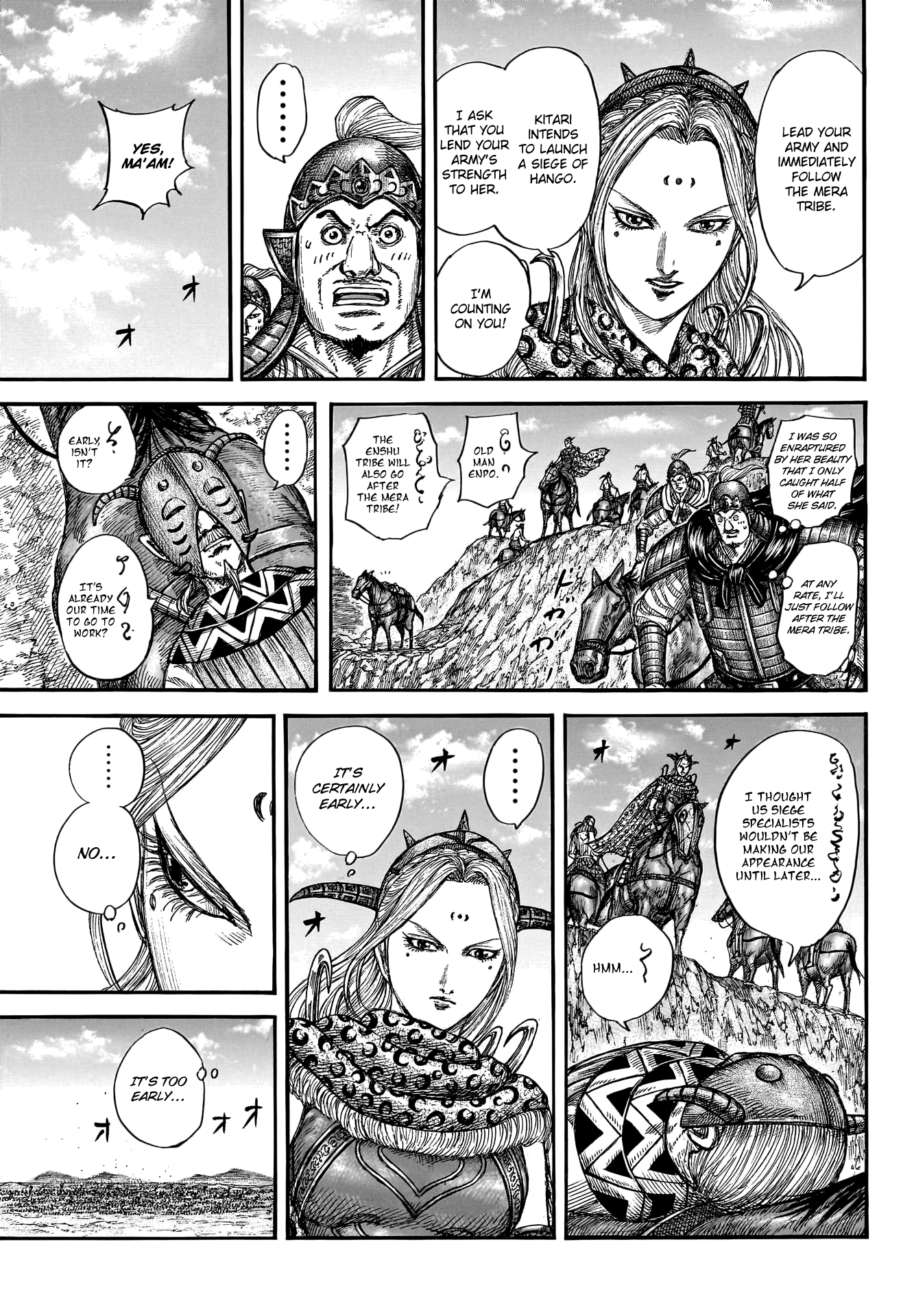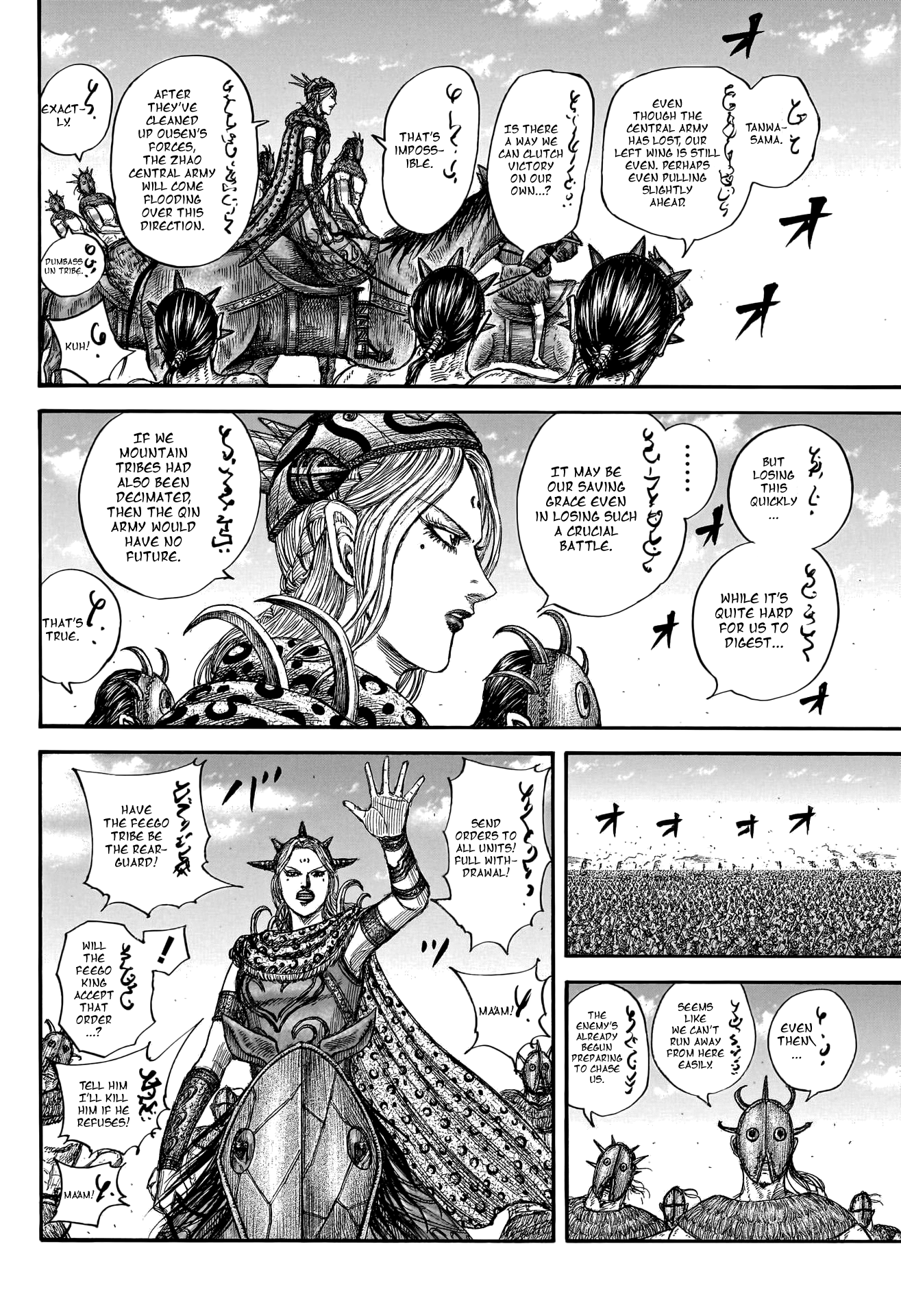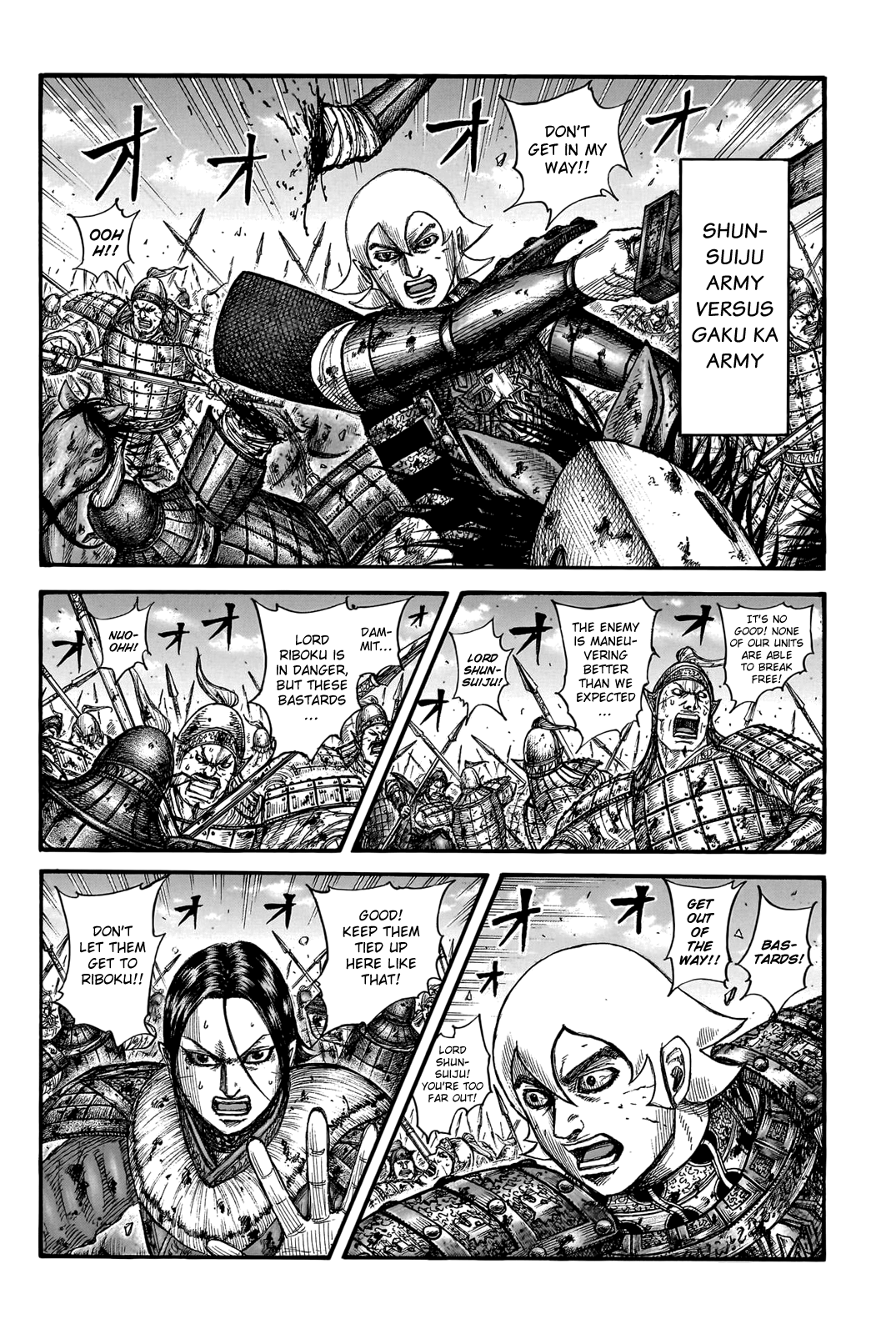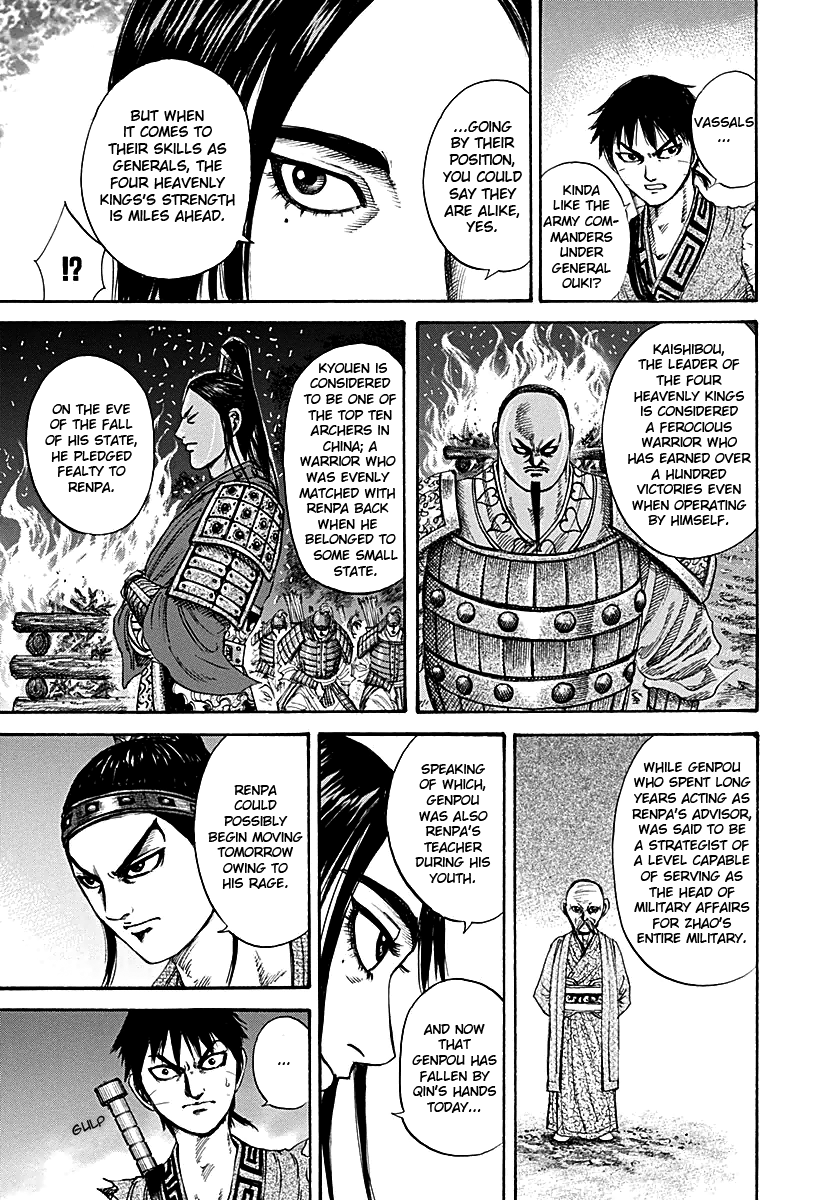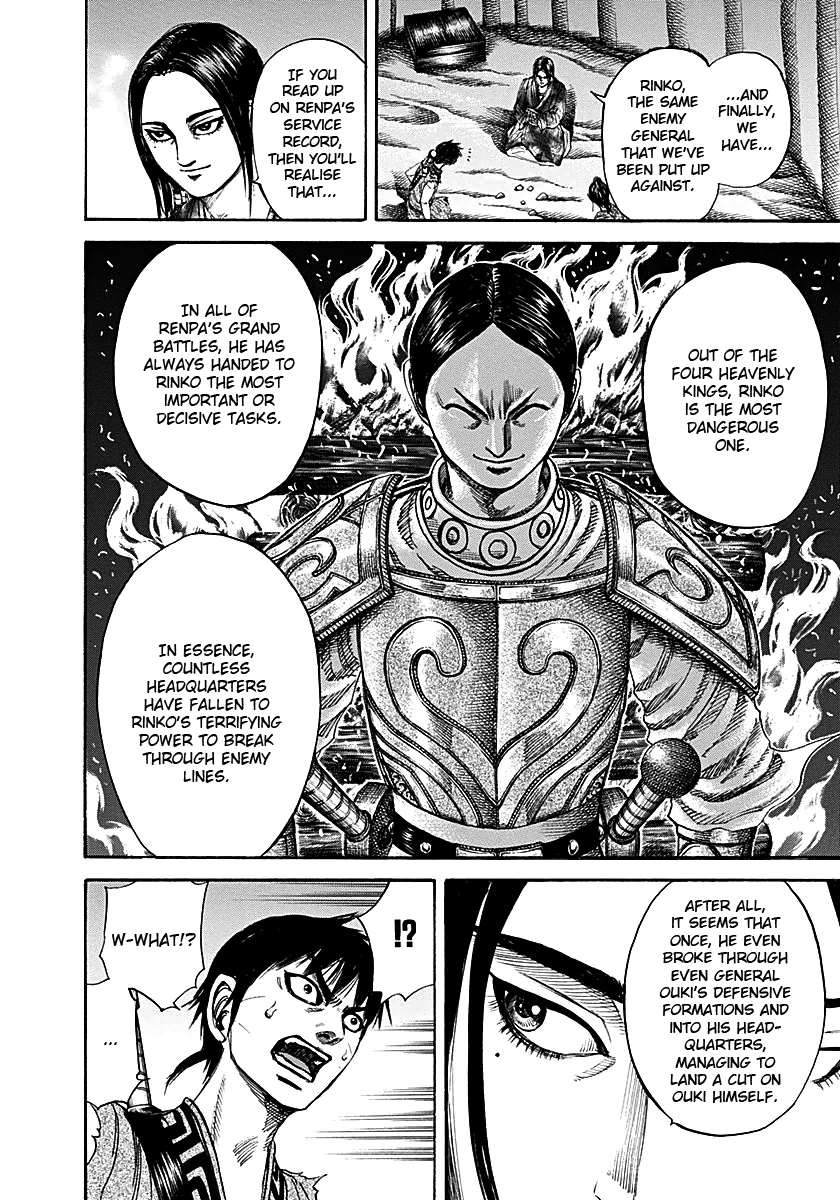No? Those guys actually played a role in battle and were crucial part of the victory. Kou Yoku doing support would be fine, because it would mean doing something. Meanwhile all he did was being a minor inconvenience.
As opposed to Kou Yoku, who was just there for the sightseeing? Had the Chu won instead, Kou Yoku would've played a crucial role in their victory by killing Tou and/or stopping him from advancing.
You're not applying your logic consistently. You minimise Kou Yoku as a nuisance, but apparently don't hold it against Tou for needing help to get past him or Go Hou Mei for changing to a support role because he lacked the firepower to compete - these are Great Generals, Gecchi Plains was Kou Yoku's first outing as a general. This isn't logic, it's plain bias.
Wrong. Ouhon would be dead if not for Kanjou and his men intervening.
You've deliberately left out pages, but even the one you've posted out of context betrays you. In the page you posted, Kan Jou was on the
outside of the Raigoku when he arrived to help Ou Hon.
Kan Jou was first engaged with the bulk of the Raiun and missed the kill unit headed for Ou Hon (ch 584).
He returned in time to call to Ou Hon with his only plan being to block whoever pursued Ou Hon upon escaping the Raigoku (ch 585).
Ou Hon escaped the Raigoku by his own strength and then returned to save Kan Jou (ch 586).
Your version of events simply did not happen.
More importantly, you don't seem to disagree with me that Kou Yoku is a more explosive fighter than Ou Hon. There's no reason to doubt Kou Yoku's ability to escape from this.
That was needed because Ouhon was commanding from his HQ. You don't really need to go that far against someone like Sento'un or Kou Yoku who always commands from the front and throws himself into danger head-on.
You seem to be forgetting the Juuko generals have no problem facing multiple armies.
Gen'U was outnumbered before and after the arrival of Haku Rei.
Sen To'Un faced the Roku O Mi and Ran Bi Haku armies, and then the ROM, GHM and Ryuu Han armies.
Kou Yoku also engaged both the Tou and RBH armies.
The willigness of Kou Yoku and Sen To'Un to get in the dirt doesn't mean they're buffoons that don't know what they're doing. I trust in their ability to shred their way out of any attempt at Raigoku. There's no reason to think they couldn't based on their feats alone.
Nah, thats a wishful thinking. If they allow themselves to consodlide forces in one spot that will create an opening somewhere else that Zhao can use. Riboku wouldn't let such an opportunity to go by.
Explain how it's wishful thinking. I cited every instance of Haku Rei on the battlefield - except one, which is another example of him in support function, only this time it was for Gen'U.
Haku Rei by his nature plays support. He always has. It's how he was introduced in the story (supporting Kou Yoku against Shin), it's how he fought in first proper battle appearance, and it's how he fought in his last.
As for consolidating forces - not only is it common sense, you've seen a very prolific example of this as recently as Gi'an when Shin packed up the Right Wing to join Mou Ten on the Left, and again when they consolidated their remaining troops to take Gi'an under Ri Boku's nose.
It's also not about consolidating in one spot either, it's about consolidating in the
right spots. Ri Boku is going to have multiple armies in each spot. Common sense would suggest not having one general having to compete against several if it's avoidable. Further, Kou Yoku and Haku Rei have extensive history of collaboration, it would only make sense to take advantage of that - especially under such circumstances.
Cool bro. If thats the case why couldn't Bajio, Shunmen and Tajifu just nuke his army with their overwhelming martial might amd kill him in the Battle of Hango? Surely someone who is primarily a fixer wouldn't stand a chance in a direct clash against three amazing warrior commanders at the same time?
Why are you acting like SSJ was on his own? There were 3 other generals there and there's nothing to suggest he was the commanding officer or superior in rank to BNJ or Kotsu Min Haku.
The mountain folk made a lot of progress quickly. Ba Jio broke through one army (778) and then got bogged down with SSJ (781).
Ba Nan Ji engaged Danto and his army stopped.
KMH was going all out against the Mera tribed and fucked up.
Even after losing the bulk of Mera tribe (12K) and all the Tai Gen troops (20K), YTW was still in a winning position if not outright winning. This is against an enemy with double the number, not just SSJ.
This is the same SSJ that couldn't even get past a
severely depleted Gaku Ka during the Gi'an campaign. He's just not that guy on the field.
The Xiongnu were specifically praised for their understanding of warfare. If they were some mindless brutes there's no way they would be considered such a threat.
The problem is that we don't know anything about the Chu armies and generals that Gen'u faced specifically. His achievements of the past are unquantifiable. Chu is such a large state that the quality of their armies has to vary depending on the region.
I didn't say the Xiongnu were mindless brutes, just that they aren't as sophisticated. That's a reasonable inference considering what little we've seen of them, how they're referred to and thought of as brutal barbarians, their relation to the Quanrong - who are not brutes either - and other contextual clues.
Chu is the largest of the seven major states with the most advanced metallurgy and boast exceptionally high military standards by fielding no more generals than the other states (on average I assume). C'mon.
Bananji was specifically compared to Kaishibou in direct clash and that was before he even went all out with his demon mode. The entire theme of Sanyou Arc is the rise of new era and new generation of commanders with higher potencial then the prievious one.
C'mon, dawg. There's more to being a general than martial might.
The Four Heavenly Kings have no equivalent.
Ba Nan Ji and SSJ put together don't measure up to the accomplishment and hype of one of these dudes.

